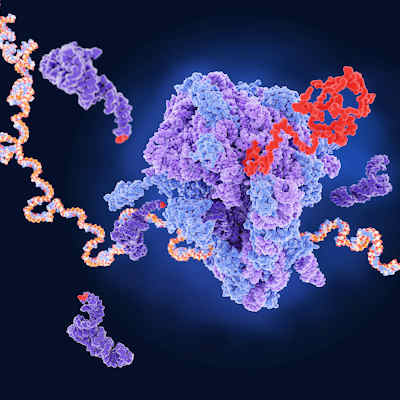October 11, 2021 -- Tecartus (brexucabtagene autoleucel), a CAR T-cell therapy, has gained approval from the U.S. Food and Drug Administration (FDA) for the treatment of relapsed or refractory B-cell precursor acute lymphoblastic leukemia (ALL) in adult patients. Tecartus, developed by Kite Pharma, is currently the only CAR T-cell therapy approved by the FDA for adults with ALL.
ALL is an aggressive cancer of the lymphoid line of blood cells that can also involve the lymph nodes, spleen, liver, central nervous system, and other organs. B-cell precursor ALL accounts for approximately 75% of cases, and that form is typically associated with inferior outcomes compared with other types of ALL. Approximately 1,000 adult patients are treated each year for relapsed or refractory ALL, and survival rates remain very poor among that group, with median overall survival at less than eight months.
Tecartus is an autologous, anti-CD19 CAR T-cell therapy. T cells are harvested from the patient and genetically modified to express CARs targeting CD19, an antigen ubiquitously expressed on B cells. The T cells are then expanded to large numbers before being reinfused into the patient. CARs combine the functions of specific antigen binding and T-cell activation into a single receptor molecule. When these modified T cells encounter CD19-expressing B cells, they proliferate and become cytotoxic, releasing cytokines to produce a coordinated immune response against any CD19+ B cells.
Tecartus has the same design as Yescarta (axicabtagene ciloleucel), Kite's other anti-CD19 CAR T-cell therapy, except that Tecartus undergoes a white blood cell-enrichment step as part of Kite's trademarked XLP manufacturing process. The therapy is also currently under review in the European Union and U.K. for the same indication.
In addition to the recent approval of Tecartus for ALL in adults, Kite has received FDA approval for three other indications for Tecartus and Yescarta:
- In October of 2017, the FDA approved Yescarta for the treatment of adults with relapsed or refractory large B-cell lymphoma after two or more lines of systemic therapy have been attempted.
- In July of 2020, the FDA approved Tecartus for relapsed or refractory mantle cell lymphoma.
- In March of 2021, the FDA approved Yescarta for relapsed or refractory follicular lymphoma after two or more lines of systemic therapy have been tried.
Kite has several other indications and treatments currently in clinical trials:
- Yescarta is in phase III clinical trials as a second-line treatment for diffuse large B-cell lymphoma. On September 30, 2021, Kite announced it had submitted its application to the FDA for this indication.
- Yescarta is in phase II clinical trials as a first-line treatment for diffuse large B-cell lymphoma.
- Tecartus is in phase II clinical trials for the treatment of ALL in children.
- KITE-439 is an autologous TCR-engineered T-cell therapy targeting human papillomavirus 16 antigen E7 (HPV-16 E7), which is currently in phase I clinical trials for adults with solid tumors that are positive for human leukocyte antigen (HLA)-A*02:01.
- KITE-718 is an autologous TCR-engineered T-cell therapy targeting melanoma-associated antigens 3 and 6 (MAGE-A3/A6). It is currently in phase I clinical trials for the treatment of adults with solid tumors that are positive for HPV-16 and HLA-DPB1*04:01.
Kite Pharma was founded in 2009 by Dr. Arie Belldegrun and Joshua Kazam to develop cancer cell therapies with a focus on autologous CAR T cells. In 2015, Kite invested heavily in the European market with its acquisition of Netherlands-based T-Cell Factory for 20 million euros. ($21 million at that time). The company was acquired by Gilead Sciences for $11.9 billion in 2017 when Yescarta became the first CAR T therapy approved to treat adults with R/R large B-cell lymphoma.
After Kite's acquisition by Gilead, founders Belldegrun and Kazam, along with Kite's chief medical officer Dr. David Chang, PhD, made a deal with Pfizer to found Allogene Therapeutics and develop allogeneic (donor-derived) CAR T therapies.
Do you have a unique perspective on your research related to cell therapy? Contact the editor today to learn more.
Copyright © 2021 scienceboard.net










